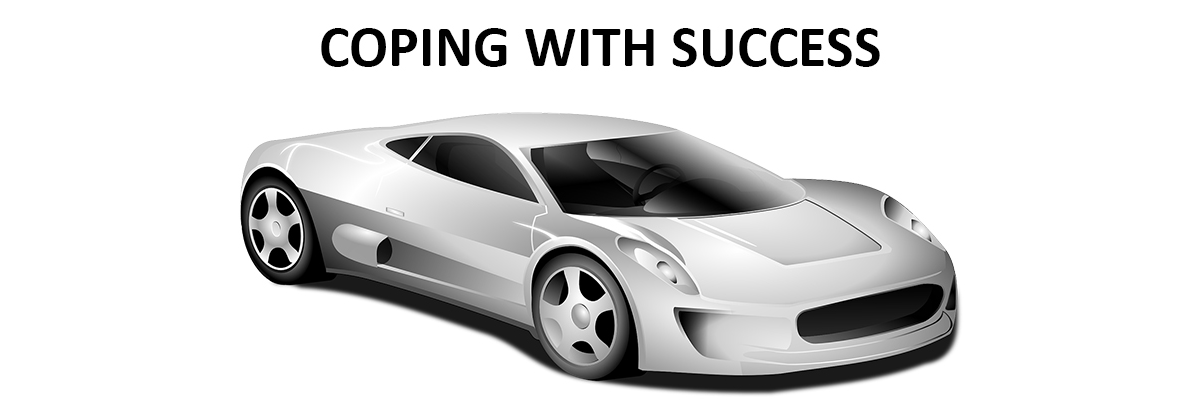by Ramesh Richard
It is a temptation, an intoxicant, a trap. It is a sedative, a palliative, an addictive. It is seductive, appealing, and confusing. We don’t normally look at it that way, but what begins as an aspiration becomes an assumption, a right. What starts as an occupation eventually becomes a preoccupation. It is the drug, the drink, the engine of the world’s dynamic, open-market economies – and we want it.
I refer to success. Success – the all-pervasive preoccupation and desire of modern men and women. We believe we have a right to it, whatever it may entail and whatever it may cost. We never question its validity because it gives us vitality. If we do not experience success in one way, we will pursue it in another. After all, what is life without success? Success defines life, because success in life is life.
Just what is “success?” The man on the street defines success in terms of the three b’s (brains, bucks, and beauty), or similar combinations of external accouterments. Notice that prestige, power, and possessions are interconnected – they reinforce each other. Those with prestige often have both power and possessions. The powerful also have prestige and possessions. And those with access to possessions gain power and prestige from them.
There is an automobile dealership not far from my home. But they don’t sell the ordinary vehicles that the hoi polloi, the general public, drive. They sell ultra-image, super-performance cars like the exotic, Italian-made Lamborghini Diablo VT. This car is only for those for whom price is not an object, and for whom the cost of fuel and insurance is no concern. The car looks like it’s moving when it’s parked. It seems to defy the laws of physics. After test driving this $250,000 machine, one reviewer concluded, “It is a wonder on its own terms: kinetic sculpture, proof of affluence and amusement park ride wrapped into one” (New York Times, March 12, 1995, “Do You Know, Mr. Vader, How Fast You Were Going?” by Peter Passell, 35A).
Talk about prestige, power, and possessions all “wrapped into one”! The Diablo VT is the car to get. Or is it? You could have a real problem in defining success by this car, because another “ultimate” car, the Bentley Azure, was introduced to the “ultracar” market in the same edition of the newspaper that had trumpeted the Diablo. The floor mats of the Bentley Azure are made of dyed lamb’s wool as deep as a man’s fist! The seats come with lumbar back supports and are heated with a memory system that remembers the preferences of three different drivers. The Azure was introduced as “a car that will conquer the world” (“The Empire Strikes Back: A New British Way to Bake the Upper Crust,” by Dan Neil, ibid). With so many “ultimates” in prestige, power, and possessions available in the world (like the Diablo and the Azure), how will you ever know what you have really succeeded?
The point, of course, is that success is always elusive when you define it by externals. Fred Moody, author of I Sing the Body Electronic, tells the story of his year with one of Microsoft’s hottest products. Commenting on his own book, he says, “I still cannot tell whether[these pages] contain a story of success, of failure, of success disguised as failure, or failure disguised as success.” The product the company had developed would make a lot of money, yet the author questions whether the endeavor was successful.
Perhaps we should define success internally. After all, internal success is far more satisfying than external success, isn’t it? By this definition, people who have none of the three p’s (which includes the overwhelming majority of people in the world’s closed, stagnant economies) can be deemed to be successful if they have an “inner satisfaction” or sense of fulfillment. Indeed, by the satisfaction definition of success, these people seem to be more “successful” than those who are driven to succeed in the external sense.
Wherever I travel, people aspire to the “success” of others. In the stronger economies, people are searching for inner fulfillment. In the weaker economies, people are looking for material accomplishment. Perhaps whether defined externally (prestige, power, and possessions), or internally (satisfaction or fulfillment), success is not an obtainable commodity or achievable state of being.
Do you know why? Because this world cannot fulfill all of your desires, plans, and dreams. It can give you success, over, above, and beyond that of someone else, but it cannot give you ultimate success. That is, I can make a comparative judgment about who is more wealthy, who is more satisfied, than whom, but I am not able to make an absolute judgment as to whether a person has achieved success.
You must also know that no creation in the universe, whether living or inert, can give you complete, unabated, and perpetual fulfillment. As human beings, we are all susceptible to failure and disappointment – we are not ultimately reliable because we are not gods. So the things we create, our Lamborghinis or Bentleys, will give us only a temporary and diminishing happiness. Human creations will grow old along with their creators, superseded by new, more innovative gadgets. They will corrode and spoil.
Only the God who is neither “of the earth” nor temporal is able to give us the kind of success we really crave.
While most of the world is hoping for success, the biggest struggle of many of our readers is coping with success. We don’t generally think of success as something to be coped with. We are convinced that when we do succeed, part of our success will be succeeding well.
Unfortunately, this is not necessarily the case. We frequently see media reports about people who have achieved success in some areas of life while failing in others. They succeed in work, but fail in family life. They make it in professional sports, but abuse their spouses or use illegal drugs. They achieve high political office only to be charged with corruption. There is no guaranty or promise that a person who succeeds will succeed well. There is no necessary correlation between the two. To succeed at success, you need eternity to pull you, and God to fill you.
While the Bible doesn’t say a lot about success, the Old Testament does provide us with two important keys to succeeding well – the Lord’s presence and the Bible’s influence in your life.
The first of these keys is revealed in the story of Joseph. “The Lord was with Joseph and he prospered…When his master saw that the Lord was with him and that the Lord gave him success in everything he did…” (Genesis 39:2,3). If you only have the Lord and nothing else, you will still have the Lord. If you have everything else in the world, but do not have the Lord, all you really have is wind, vanity, and air bubbles. It is the Lord’s presence in your life that gives you rest, perspective, and hope in the midst of your success. “My Presence will go with you, and I will give you rest” (Exodus 33:14) was the Lord’s pledge to Moses before He allowed Moses to glimpse His divine glory. “He never leaves you nor forsakes you (Hebrews 13:5) is an assurance that we can draw upon as we face the challenge of keeping our lives free from the love of money. You can handle success well when you know that the Lord is with you.
The increasing influence of the Word of God in your life is the other key for succeeding well. Moses’ parting words to Joshua show us the path to success: “Do not let this Book of the Law depart from your mouth; meditate on it day and night, so that you may be careful to do everything written in it. Then you will be prosperous and successful” (Joshua 1:8; cf. Deuteronomy 29:28; I Chronicles 22:13). We cannot make our way successful. We can only submit to the influence of the Word in our lives, and then God makes our way successful.
The Bible has much more to say about the blessings and favor of God than about success. Divine gifts can be both external and internal, physical and spiritual, earthly and heavenly, temporal and eternal. As we receive them, we acknowledge their source – God Himself. As we seek first His kingdom and His righteousness, the necessities of life, the “things the Gentiles eagerly seek,” will be given to us (Matthew 6:33). Far more than for prestige, power, and possessions, people everywhere hunger for love, peace, stability, forgiveness, eternal life, and hope. Just think of it. You have already been given these blessings, these successes, if you are in the Lord Jesus Christ. They are also being given to us continually as we obey God’s Word.
You can succeed well. You can cope with success by acknowledging the Lord’s presence in your life and submitting to the Word’s influence in your life. To help you cope with success, I have prepared a couple of talks that I think will help you along life’s journey. To order a copy click here.






